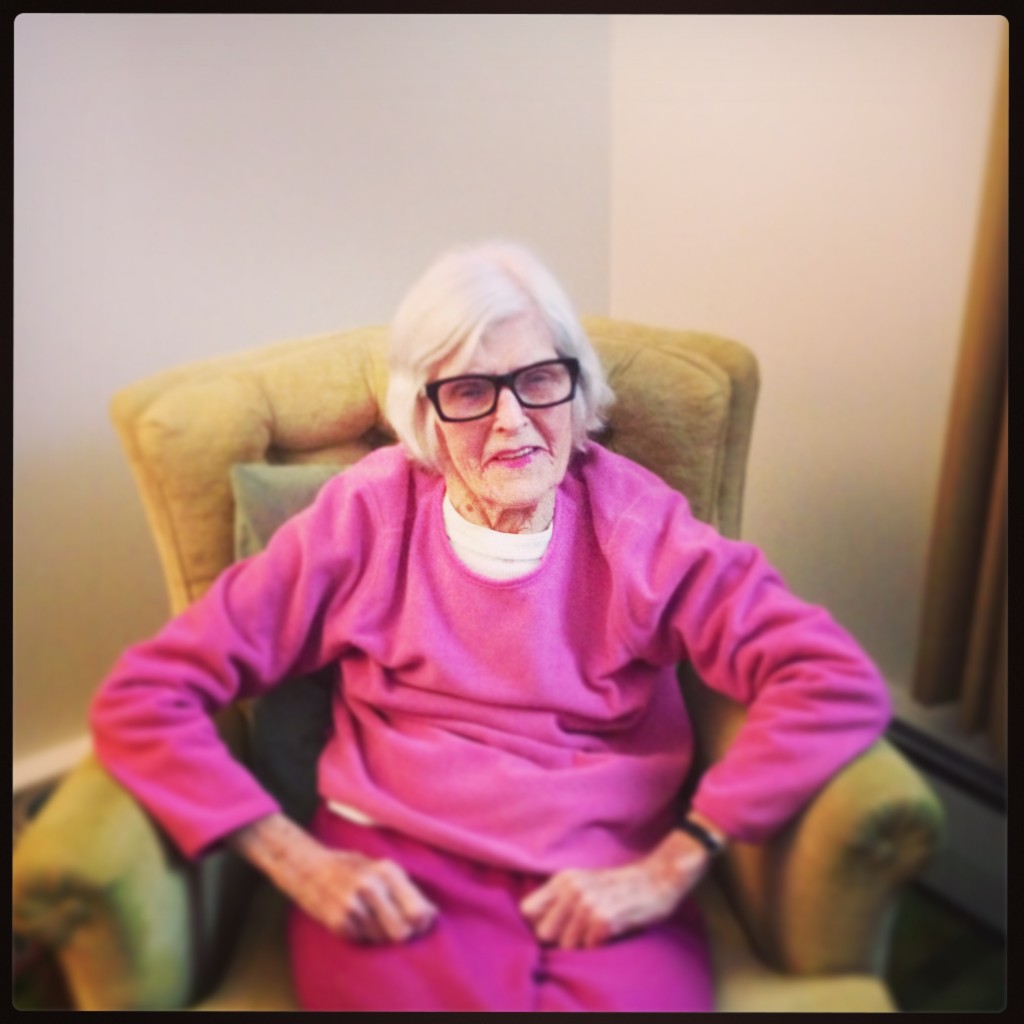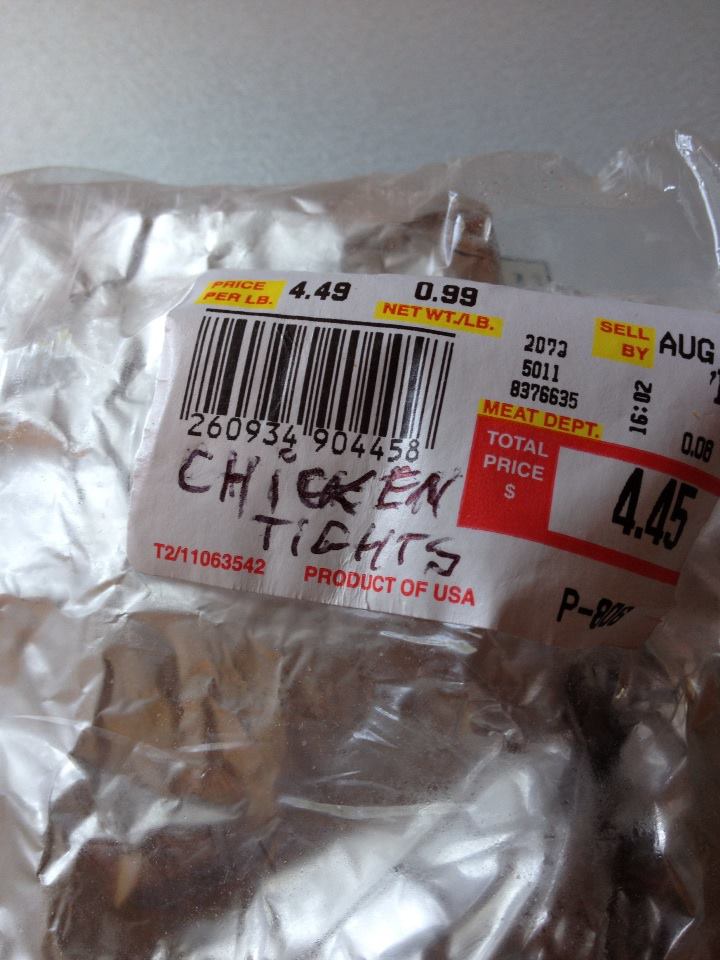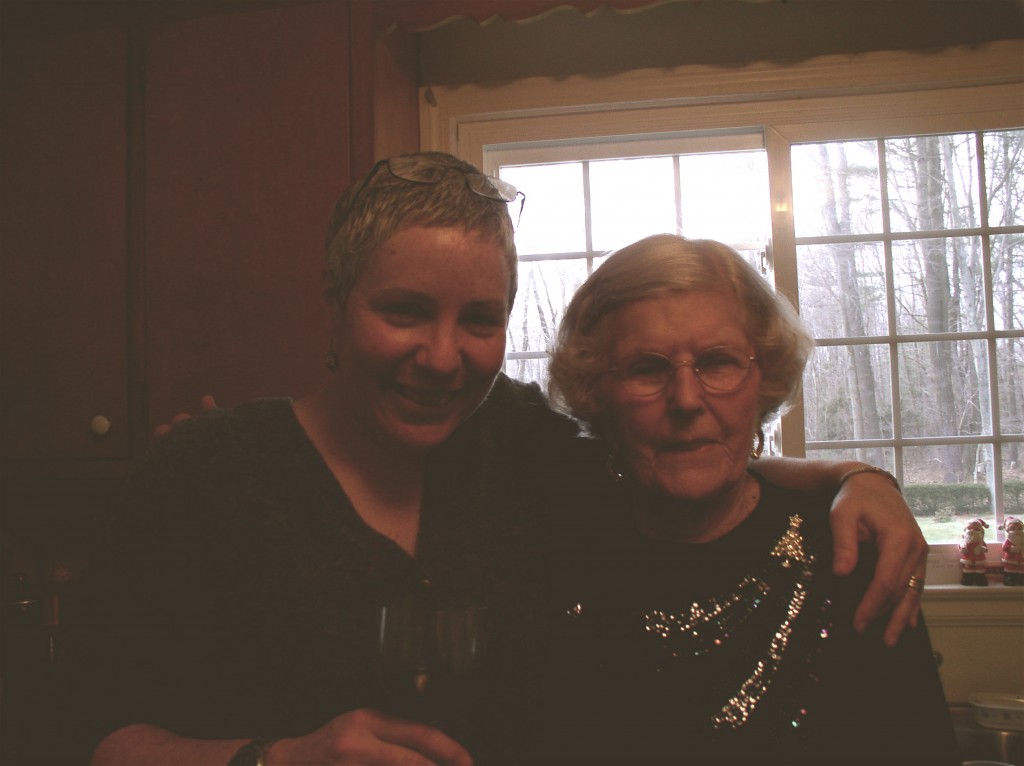It has been exactly one month and a day since I last wrote, and that, in the blogging world, is a lifetime — a broad swath of running around and chores to do and errands to run and people to see and fires to put out and commutation tickets to buy and tweeting and texting and trains to ride and meals to make and books to edit and articles to write and recipes to test. Hours go by and then days and then weeks, and the time seems to evaporate, just like that. Which it did.
It’s just life, one of my friends said, adding the annoying aphorism Life is what happens when you’re busy making other plans. But the fact is, I haven’t really been making other plans. I’ve been living with blinders on, trying to keep far too many balls in the air at once, dropping some here and there, running on fumes. Until I was reminded, in the harshest of ways, that I wasn’t paying attention to the beauty and the light, and the most important things.
Susan’s mother passed away last Monday, the 12th, in the evening. Helen hadn’t been well for months; back in February, right before I left on tour, she’d had one in what the doctors thought was probably a number of heart attacks. There was congestive heart failure, an aortic valve the size of a pinhead, high blood pressure, low blood pressure, water-logged feet, more heart attacks. There were repeated trips to two different doctors, one hospitalization, broken hearing aids, salt-free cooking, and Susan’s attempts at replicating her favorite meal — pizza — with rubbery flavorless cheese and watery tomatoes. There was a caregiver who was taken out of the house in an ambulance (Meniere’s Disease, set off by stress); a second caregiver who Helen fired; a third caregiver who we loved but who chose to go back to Poland. There were terrifying pre-dawn phone calls, and furious fights over the cane she refused to use, fights over the walker she refused to use, fights over the car she threatened to drive, secret decisions to replace the car key with one that wouldn’t work, fights over the forty five year old, eyeball-burning lime green Karastan broadloom she was certain the caregiver was wearing out by walking on it, fights over proper lawn care and the trimming of twenty-five, eight foot tall hemlock trees which she insisted she could do by herself.
With electric shears.
At 94.
And there was a leg gash that happened when she went down the stairs to help the furnace guy. The basement stairs.
What can you say about a 94-year-old woman who insisted on helping the furnace guy in the basement when she could barely cross the room, or trimming her hemlock trees with electric shears when she couldn’t even lift her arms?
You can say the usual stuff: Incredible! Remarkable! Such an inspiration! So independent!
And really, that’s all true. But it’s also trite and does absolutely nothing to define her. And that’s the question we’re left with, isn’t it: after nearly a century of life, how can this woman be accurately defined by those of us who survive her? How can anyone who dies — young, old, untimely, expected, violent, peaceful — be defined by their survivors? It just feels so impossible and otherworldly to me, the way that beauty feels so impossible, and so inexplicable.
My mother-in-law wasn’t a cardboard cutout, a one-dimensional paper doll in a Goodwill getup; she wasn’t just the frail little old lady who the new, grandstanding Monsignor at the church she attended faithfully for 75 years — he had never even met her — wouldn’t allow me to eulogize after her devout family had asked me to (was it because I’m a woman married to Helen’s beloved daughter, Monsignor, and you didn’t want my type speaking in your church on your watch? You can disrespect me, sir, but how dare you disrespect this family, and my wife, and her mother.). My mother-in-law was audacious, farm-raised, a pious Catholic, simple, complicated, a fierce contradiction in terms, a flesh-and-blood connection to another time and place where people lived lives unsullied by Smartphones and text messages, GMO-labeling and the ability to buy assault rifles, diapers, and bubble bath all in the same place.
It was not always easy for us, me and Helen; she was deeply suspicious when I showed up that day in her kitchen, way back in 2000. Susan and I sat at her small Hitchcock kitchen table, eating galumpki — stuffed cabbage — under the watchful blue doe eyes of a Ted Neely-esque rendering of Jesus stuck to the refrigerator with a daisy magnet. Who was I? Where were my people from? She was dubious, and she wasn’t shy about letting me know that. And I wasn’t entirely sure about this Polish Catholic Yankee woman with a penchant for dressing in bright pink from head to toe, who tooled around town in an ’81 Buick with 7000 miles on it, who would flirt with any man who crossed her path (including my father, who she met a year later), and whose daughter with the green eyes and kind heart I was madly, hopelessly in love with.
So I tried to win Helen over with my cooking: our first Christmas together, I wrapped an entire filet of prime beef in pancetta and lemon slices, tied it up with sprigs of rosemary tucked under the string, and slathered it with olive oil. She glowered through a beefy, porcine haze when I brought it to the table.
It’s too complicated, she said, sighing, coughing.
She was right.
It took me fourteen Easters to figure out that she just wanted a plain ham with a predictable glaze, and some mashed potatoes — not one covered in French mustard and Panettone breadcrumbs, or brushed with small batch Bourbon and artisanal orange juice. She told me endless stories of the meatballs that her mother used to make — braised in some sort of taupe cream sauce that only her late sister Sophie had the recipe for — until I tried to replicate them for her, and failed miserably.
What were they made from? I asked, exasperated.
Meat, she said, unsmiling.
We went through a year-long spate where she refused to talk to me — she never bothered telling me and Susan why — until I showed up at her house and made a batch of Edna Lewis’s fried chicken (cooked in lard, bacon fat, with a hunk of country ham) followed by Molly Wizenberg’s famous Hearts and Minds Chocolate Cake, which seemed appropriate both in flavor and moniker. The ice thawed; we hugged as Susan and I left.
I love you, Elissa, she said, her voice creaky.
You do? I asked.
Just cause I’m mad doesn’t mean I don’t, she laughed.
(Peace out, Helen-style.)
Over recent years, things changed; our trips to see her stopped involving doing the backbreaking chores she loved, like spending three hours bent over in the autumn sun, picking turnips at the farm around the corner from her house. She could no longer walk our dogs with us; it was just too hard. Her cooking changed, too: she gave up roasting the cheap, lemon yellow, cornfed chickens sold by her local supermarket and instead drove herself an extra half hour to a fancy grocer — the additional cost in gas infuriated her — and paid eight bucks more for a better one, after seeing an undercover report on the plight of industrially-farmed birds. She was 92.
From here on in, she told me angrily and malaproptic as ever, I will only eat Bell & Howell chickens.
Of course, I said, thinking of my father’s old movie projector gathering dust in our basement. There was no way I was going to correct her.
So here we are, facing an immense void so deep and wide it’s indefinable. We’re confused, muddled, a little bit dizzy. Susan is untethered. We cleaned out her freezer today and I was furious as I pulled out all the things she wasn’t supposed to eat with her condition — the sausage, the frozen meals, the fried and frozen hash browns, a package of skin-on chicken thighs labeled CHICKEN TIGHTS. If she hadn’t eaten this dreck (tights notwithstanding) — if she’d taken better care of herself — I was certain she would have lived so much longer, and I would have gotten to know her better.
Or at least I could have spent more time on her back porch with Susan — the three of us drinking weak vodka tonics and listening to Helen talk about the sturdy beauty of her half-century-old, wall-to-wall Karastan, and how a mother fox and her three kits stopped by to say hello when she was out in the garden, deadheading the coneflowers.









Sweet.
Lovely.
so sorry for your loss. may the memories you write about (so wonderfully) sustain you through this dark and difficult time.
My mother is 92, very healthy, & has Alzheimer’s.
She still knows who my sister & I are, but the rest is a muddle.
My heart goes out to you both. It can be so very hard.
What a wonderful tribute. This sums it up:
I love you, Elissa, she said, her voice creaky.
You do? I asked.
Just cause I’m mad doesn’t mean I don’t, she laughed.
I grew to “know” you, Susan, Helen, and everyone else through your amazing stories in Poor Man’s Feast. What a wonderful life you all have had had –thank you for sharing it with us, your readers.
Your note, Elizabeth, is a blessing, and I’ve just shared it with Susan. Thank you so much. x
What an excellent post – I think you’ve eulogized Helen very well. I can only hope someone does as well by me when it’s time.
Beautiful. My mom is about to turn 90. You describe the joys and sorrows, dilemmas and love, of dealing with an aging parent so well. I am deeply sorry for Susan’s and your loss. Your questions will be answered, one at a time, as you both find your way in life without Helen. The best parts of her will live on in you both. Peace.
In spite of this being about the sadness of the death of a loved one, it was a joy to read. At least Helen left earth feeling that Susan is in excellent hands.
What beautiful truths about someone you loved. I’m sorry for your loss.
Please hug Susan for me, and ask her to hug you back for me. (This is better than a virtual hug…) My condolences to you both. Reading about her in your book had been a treat. I still miss my Mom, as you miss your Dad. I’m sure Susan knows it will be a one day at a time situation. I hope she will be gentle with herself.
Your writing is as enchanting as ever, even though your heart is so heavy. Both you and Susan will take Helen with you everywhere you go, and her love will envelop your life. Give yourself enough time to mourn.
xoxo
Powerful story, thanks for sharing.
Ah Lissie, the truth of one’ s life – people are complex, the push-and-pull of love for which one is unprepared and the unspeakable ache when it is gone. May her memory be a blessing – for Susan and for you. I hope she is toasted whenever you drink a weak v&t..
Lovely tribute.
From this day forward, take the time to raise a vodka tonic and pay attention to the coneflowers and turnips. Eat some crappy food once in a while. Know that when people are mad, they still love you. That will keep Helen’s life and message alive and well. I am carrying your message about her with me into my day, with a new resolve to pay attention to the small things, to wear bright colors, and to drink that vodka tonic!
You are right—there is just never a right way to “define a lifetime”. But I think you approximate it here. I’m reading E.M. Forster right now a lot and you remind me of him a bit—such humanity and love shown for every wrinkle and idiosyncrasy of a person’s life. Sending hugs. S
There’s a strength and unfussiness (even while they fussed) about women like Helen. A clarity. I’m so sorry for your loss and Susan’s. I’m very glad you have each other. You really do honor her in your stories. Big hugs to you both. (and the eulogy was perfect. shame on the Msr.)
Bless you for sharing this beautiful account of sharing life with a lovely lady and mother.
I stepped back to my Mom’s last days…after a heart valve replacement that kept her in medical care and through surgery during Christmas (her favorite) and through January, she left us one morning after strolling in her garden the day before.
I finally realized that that walk outside on a beautiful February afternoon, and being surrounded by her family through her hospital stay, was exactly the way she wanted it to be.
There is nothing more important than being truly present with those we love, especially as we walk them home…
A beautiful tribute, Elissa. Your persistence to earn Helen’s approval (and love) speaks volumes about your love for her daughter. I’m sure Helen would have given the monsignor hell for his insensitive refusal. My condolences to you and Susan.
Elissa, my heart is sad for you and Susan. My Mom is 92 and these last years have been difficult and of course she is not who she was. Are any of us? So i will cherish each day I have my Mom as a tribute to Susan’s and may they one day meet in heaven and talk about their daughters until we join them.
She lives on as long as anyone who knew her and loved her lives and remembers her. Trite, but true.
It’s complicated…isn’t it? And I don’t mean filet of beef wrapped in pancetta and lemon. I mean this messy existence known as life. I admire your understanding and acceptance of the complexities: the love and the unlove. My heartfelt sympathies to you and Susan on your great loss of Susan’s mother.
It’s always difficult – impossible – to sum someone up in words. One can write a book, still won’t suffice to capture all the tiny nuances that makes a person. Both my grandparents died within a few months of each other this year. It has turned life upside-down in a way I had not imagined. They were well into their 90s.
My best to you both!
So sorry for your and Susan’s loss. I am almost done with your book and feel like I’ve known yours her family for years, your writing is just that good. She was certainly a strong woman who has left a strong inheritance.
You truly honor Helen and bring her memory so lovingly to life–your huge kindness to us in sharing so deeply about the ” beauty and the light and the important things” pierces my heart, so powerfully reminding me of what really matters. Thank you. Wishing you and Susan all the best.
Thank you Margit, so much, for your kind words-
A heart-rending and beautiful tribute to a woman you grew to love and who grew to love you. And while I get your anger at seeing the “drecK’ in her freezer, I silently applauded, having learned that this was a person who liked what she liked, how she liked it and when. So much is taken from us as we age–mobility, health, autonomy–and choosing to eat chicken tights was Helen’s small but unmistakable way of saying, “I’m still in charge.” Bravo.
I’m new to the blog…I only found and read your book this past weekend, so Helen’s passing seems especially sudden. May her memory be a blessing. I’m so sorry for your loss.
Thanks so much Lynn–